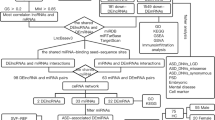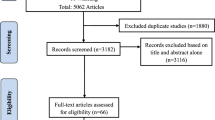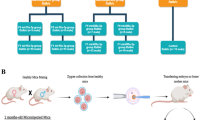Abstract
Intronic single nucleotide polymorphisms (SNPs) in the clock genes npas2 and per1 and the homeobox gene en2 are reported to be associated with autism. This bioinformatics analysis of the intronic regions which contain the autism-associated SNPs rs1861972 and rs1861973 in en2, rs1811399 in npas2, and rs885747 in per1, shows that these regions encode RNA transcripts with predicted structural characteristics of microRNAs. These microRNA-like structures are disrupted in silico by the presence of the autism enriched alleles of rs1861972, rs1861973, rs1811399 and rs885747 specifically, as compared with the minor alleles of these SNPs. The predicted gene targets of these microRNA-like structures include genes reported to be implicated in autism (gabrb3, shank3) and genes causative of diseases co-morbid with autism (mecp2 and rai1). The inheritance of the AC haplotype of rs1861972 - rs1861973 in en2, the C allele of rs1811399 in npas2, and the C allele of rs1234747 in per1 may contribute to the causes of autism by affecting microRNA genes that are co-expressed along with the homeobox gene en2 and the circadian genes npas2 and per1.
Similar content being viewed by others
Article PDF
Author information
Authors and Affiliations
Corresponding author
Rights and permissions
About this article
Cite this article
Nicholas, B., Owen, M., Wimpory, D. et al. Autism-associated SNPs in the clock genes npas2, per1 and the homeobox gene en2 alter DNA sequences that show characteristics of microRNA genes.. Nat Prec (2008). https://doi.org/10.1038/npre.2008.2366.1
Received:
Accepted:
Published:
DOI: https://doi.org/10.1038/npre.2008.2366.1



